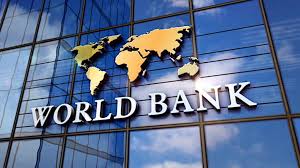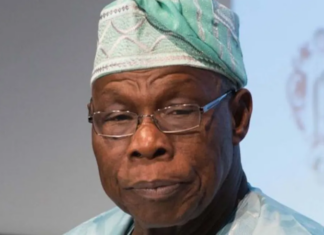World Bank removes loan fees to facilitate global economic growth
By Jeph Ajobaju, Chief Copy Editor
World Bank loan fees have been removed for Nigeria and other poor countries to make borrowing more affordable for vulnerable nations and facilitate inclusive global economic growth.
The bank said initiative is part of broader efforts to expand financial capacity and address urgent global challenges, including climate change, inequality, and economic fragility.
It disclosed on X (Twitter) that it eliminated prepayment premium on International Bank for Reconstruction and Development [IBRD] loans, introduced a grace period for commitment fees on undisbursed balances, and extended its lowest pricing to small, vulnerable states.
“The bank is working hard to make it easier for countries to borrow and to pay back their loans more easily by removing some fees on IBRD loans,” the statement explained.
“These measures are designed to make borrowing easier and more affordable for countries facing significant challenges.”
The World Bank said the changes align with its vision of building a “better, more efficient, and bigger” institution that can address overlapping global crises.
The fee eliminations are part of its broader financial reforms, which aim to increase lending capacity by $150 billion over the next decade, to be achieved through innovative financial instruments, leveraging shareholder support, and optimising available capital.
The bank gave an assurance that these measures would not compromise its Triple-A credit rating.
The reforms also include
- Adjustments to the IBRD’s equity-to-loans ratio, which was reduced from 20 per cent to 18 per cent, enabling additional lending of approximately $70 billion over 10 years.
- A $10 billion unlocked through bilateral guarantees and $1 billion secured via a guarantee from the Asian Infrastructure Investment Bank.
“The adjustments to our capital framework reflect our commitment to scaling up resources while maintaining financial stability,” the bank said.
It added that these changes are critical for addressing the trillions of dollars required annually to combat climate change, support fragile states, and promote digital inclusion.
It stressed, however, that governments and multilateral institutions alone cannot meet these financial demands.
To bridge the gap, the World Bank reiterated that it has introduced a Framework for Financial Incentives (FFI) which encourage investments in cross-border challenges such as biodiversity, water security, energy access, and pandemic prevention.
The FFI, approved in April 2024, also launched the Global Solutions Accelerator Platform and the Livable Planet Fund, with Japan pledging the first contribution.
“The FFI is the first comprehensive framework among multilateral development banks to incentivize financing for projects with global benefits,” the bank said.
It highlighted the development of innovative financial tools to attract private sector investment, which include outcome bonds, catastrophe bonds, and climate-resilient debt clauses that offer borrowers flexible terms during natural disasters.
One innovation is the Wildlife Conservation Bond which directed private financing toward Black Rhino conservation in South Africa. Another is the plastic waste reduction-linked bond that mobilised funds for recycling projects in Ghana and Indonesia.
“We are finding new ways to channel private investment into emerging markets and address barriers to sustainable development,” the World Bank said.
Read also:
Access Bank raises new N351b to surpass CBN N500b capital base requirement











